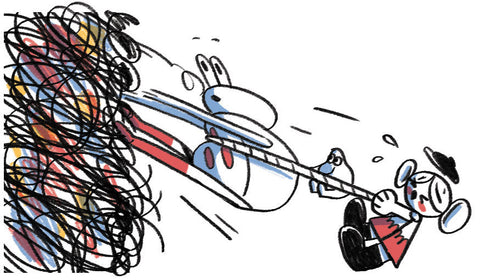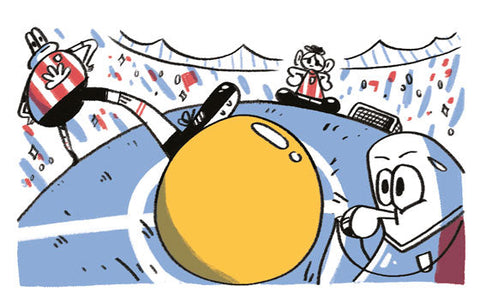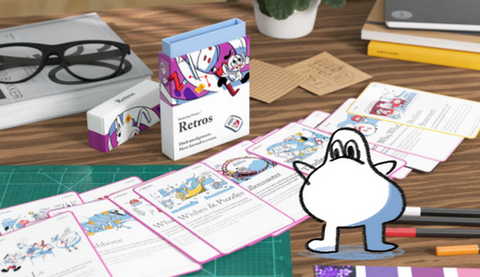To run a great workshop, you must have talent. Talent is the ability to do something well. There are no shortcuts to becoming talented; you have to start out by doing that ‘something’ poorly.
What is the secret to become a talented facilitator?
You must reduce or eliminate errors.
This is only possible by trying, failing and trying again, until you reach success.
When you adopt the mindset of error reduction, you start viewing failure not as something to avoid, but something to purposefully pursue.
But this doesn't mean you should go derailing your own workshops!

To complete one lap of a Formula 1 circuit, there is only one thing you need to do.
Not crash.
You might take the first lap as slowly as possible to ensure you complete it. Then you take the next lap a little faster. Soon, you’re completing laps twice as quickly as when you started. You’ve gained confidence.
Then: BAM.
You spin out on a corner and crash off of the track.
You realise that you took the corner too fast.
Next time, you’ll be more careful and adjust your speed before you reach the bend.
This process of making mistakes and learning from them is crucial for developing talent.
It applies when driving the fastest cars in the world, but also when facilitating workshops, design sprints and co-design sessions.
Only by repeating the monotonous - and often frustrating process of getting it wrong, do we start to build confidence and become talented.
As Bill Gates says, success is “a lousy teacher” because it “seduces smart people into thinking they can't lose."
If you receive positive feedback on your workshop, it doesn’t always help you grow or learn. “I love it” and “It was great” stroke the ego, but feel-good comments don’t develop your talent. How do you know how to get better?
Making mistakes teaches you what to improve, and what to avoid altogether in future.
Feedback that starts with “I wish it was…” and “If only we had…” highlights little errors that you can rectify. Ultimately resulting in a better experience, and future knowledge you can use to overcome the next set of challenges you face.
The best Formula 1 drivers in the world make zero mistakes at hundreds of miles an hour, for dozens of laps.
One error at that speed can be fatal. To get to that level, they start small. Most, if not all, F1 drivers start out karting at a very young age.
They make thousands of tiny, non-fatal mistakes on track throughout their lives, correcting them, building confidence, then using that confidence to push themselves further.
Getting hours of facilitation practice takes years and years.
The best thing you can do to limit mistakes is to plan your workshop ahead of time and practice it at least once with some willing allies. But there is no substitute for getting the experience of running workshops.
Full disclosure: reading about how to run great workshops will not actually help you become a talented facilitator. The only way is to get the hours in. Practice, practice, practice!
Some of the first workshops I ran really sucked.
There was no shortcut to get better at them. I had to get it wrong and reflect on my mistakes, identify why they had gone off-track or become awkward - and then try a different tack next time.
Mistakes can put us off trying again.
However, those early mistakes you make are crucial.
Getting the big ones out of the way paves the way for noticeable improvement and the confidence that brings.
In the beginning, you make macro mistakes that seem to throw you off course entirely. As time goes on, these diminish or disappear altogether. You end up with micro mistakes.
Formula 1 drivers can lose the lead with just one, tiny mistake: slight oversteer, or braking too early on a corner. Being the best in the world means not even making one such mistake - but it takes years of making them to get there.
Embracing your errors is the route to talent.
Talent is understood as the ability to do something without getting it wrong. To learn how to do something without making mistakes, you must first make all of the mistakes - and learn from them.
Early on, errors are significant and can be off-putting or even derail your progress entirely.
But perseverance and hours upon hours of practice allow making more of those severe mistakes.
Each time you get it wrong, you learn a lesson that can’t be learned any other way.
Each error you no longer repeat gives you more confidence. Without mistakes, you cannot become talented.
So what is the secret to run a great workshop?
Get the reps in, embrace failure and seek constructive feedback persistently.
Read next: Why you should run your next workshop in silence or how to become a confident workshop facilitator (mindset over matter).









